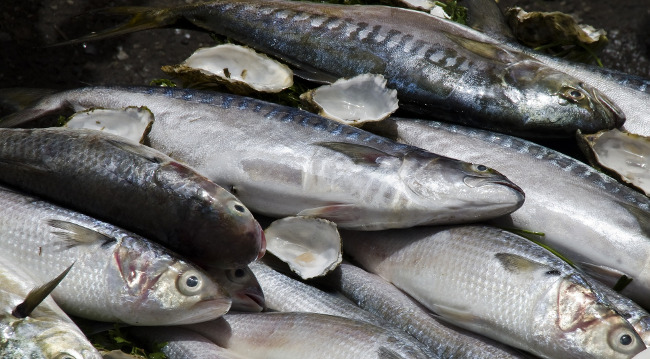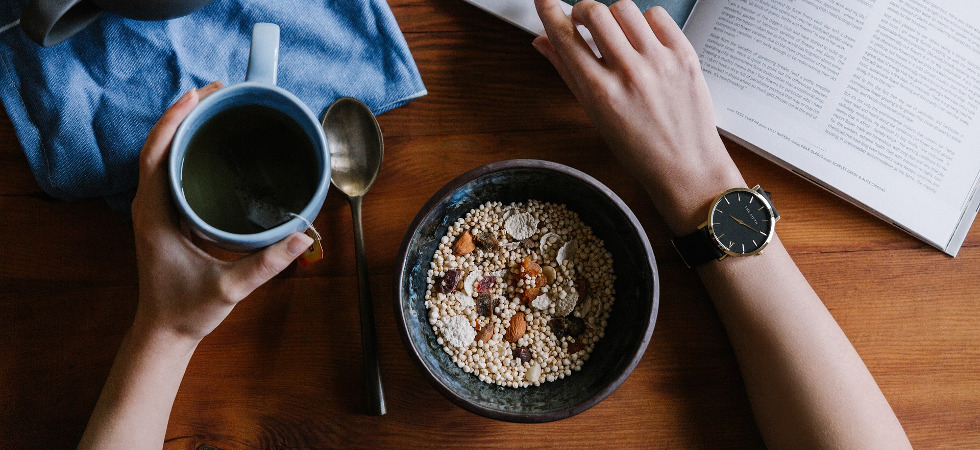There can be many reasons for feeling tired, with the most obvious being lack of sleep! But what you eat and drink can also be important. The ‘right’ choices will provide slow-releasing energy, as well as all the necessary nutrients to help your body convert that food to energy.
Nutritionist Cassandra Barns reveals six healthy choices you can make to improve your ‘get up and go’!
Whole grain oats
If you start the day with a sugary breakfast cereal, toast or croissant, your energy is probably taking a nosedive by about 11am. Try swapping them for whole grain oats: as an unprocessed whole grain, they’re higher in fibre and break down more slowly, providing sustained energy. They’re also a natural source of energy-producing vitamins and minerals such as magnesium, vitamins B1 and B6. Go for Nairn’s Scottish Porridge Oats – as well as porridge, they can be used to make ‘overnight oats’, or to make your own healthy muesli by adding chopped nuts or seeds and a sprinkle of dried fruit.
High-protein pasta
Like sugary breakfast cereals, the average bowl of pasta won’t keep your energy up for very long. As most pastas are made with refined white flour, they’re quickly broken down in the gut and absorbed, giving you a blood sugar high followed by a slump. Instead, try a high-protein pasta such as Clearspring’s Green Pea and Quinoa Pasta. It contains almost twice the amount of protein of a standard pasta, and more than twice the amount of fibre. This means that breaks down and releases energy more slowly, as well as filling you up for longer – a bonus if you’re watching your weight!

Mackerel
One reason for low energy can be a deficiency in a specific nutrient (or nutrients). A common example is vitamin B12, which works with iron to help build healthy red blood cells that carry oxygen around your body. Mackerel is one of our best natural sources of B12, and also provides other B vitamins and magnesium, which help our body to release energy from food. Added bonus: it’s also high in heart-healthy omega-3s, and high in protein too, helping to balance your blood sugar.
Sea vegetables
Another nutrient that can be lacking in the average person’s diet is iodine. This trace mineral is vital for making thyroid hormone, which plays a crucial role in metabolism and energy release from food. When we don’t make enough of this hormone, one of the first symptoms is tiredness. The best food source of iodine is sea vegetables; try snacking on Clearspring’s Seaveg Crispies.
Water
Could your tiredness simply be due to not drinking enough water? Water helps nutrients and oxygen to get where they’re needed in the body, and plays a role in chemical reactions that break down food molecules to make energy. So it’s no wonder we feel deflated (literally) when we don’t drink enough. Aim to get about 1.5 to 2 litres of water a day, which can include liquid in foods such as soups, caffeine-free teas and watered-down fruit juices.
Raw chocolate
If you’re a chocolate fiend – or even if you’re not – then try raw chocolate. Whereas a standard chocolate bar can give you a quick energy buzz from the sugar content, it’s likely to last for long. But raw cacao – the unheated, unroasted version of cocoa – is actually a superfood, rich in energy-providing nutrients such as magnesium and iron. It also contains a gentle stimulating substance called theobromine. But by choosing raw chocolate, such as OMBAR chocolate made with raw cacao and without refined sugar, you’re getting the benefits of the energy-supporting nutrients without the sugar rush.






















